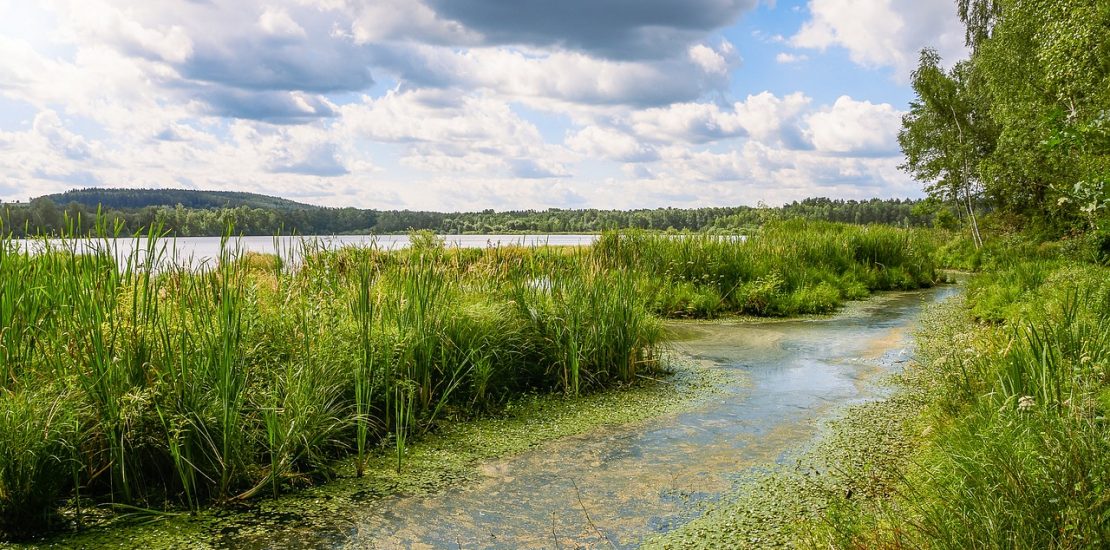Climate change and antiquated septic systems contributing to electric-green algae blooms in Massachusetts.
- January 3, 2023
- Posted by: Sinead Sprigg
- Category: Environmental, Global, Water Issues, Water Treatment, North America

A population boom over the past half-century has meant more human waste flushed into toilets; more waste also means more phosphorus entering the Cape’s freshwater ponds. Climate change is also contributing to warming waters, which contribute to algae blooms and thickening mud on the bottom of the Mashpee River, suffocating any life that grows there.
Massachusetts has proposed to fix the problem within 20 years – the plan involves upgrading septic tanks and building new public sewer lines. But local officials say the plan could run into the billions of dollars and push housing costs. Robert Whritenour, town administrator of Yarmouth, said “[i]t’s simply unfair.”
Mashpee has about 15,000 full-time residents, no main street, and no historical district. What it does have, is waterfront. Massachusetts must now decide whether to move ahead with the mandate.
The concentration of nitrogen in the Mashpee River can reach three times the maximum safe threshold. The average August water temperature in Popponesset Bay jumped from 68.2 degrees Fahrenheit in 2007 to 76.5 degrees this year.
The ecological toll of the Cape’s reliance on septic systems is not limited to the shoreline. Cape Cod is dotted with freshwater kettle ponds that were formed by glaciers. One of Mashpee’s largest is Santuit Pond, roughly 170 acres of water.
Brian Baumgaertel is director of the Massachusetts Alternative Septic System Test Center. He runs sewage through a variety of contraptions and sees what comes out the other end. Septic systems work well where homes are too sparse to justify expensive sewers.
A public sewer project would serve 439 single-family homes. The town’s plan is to eventually build sewers covering three-quarters of Mashpee. It’s not yet clear who would pay the cost of the sewer installations.
